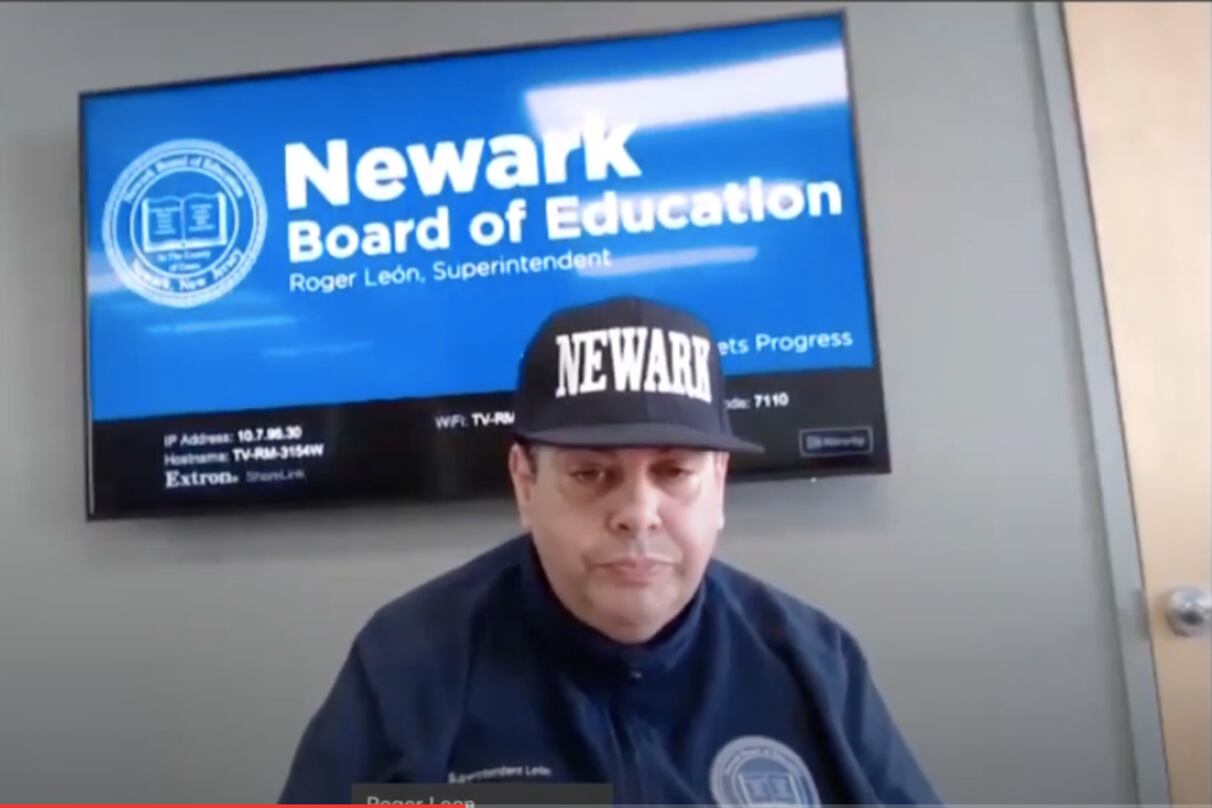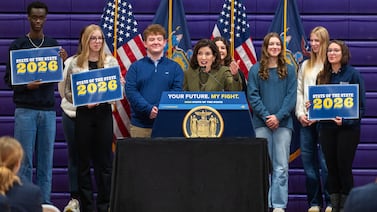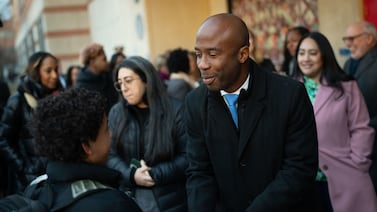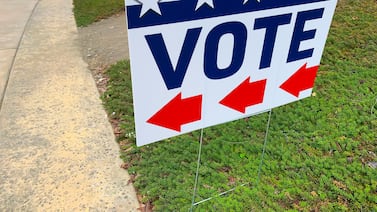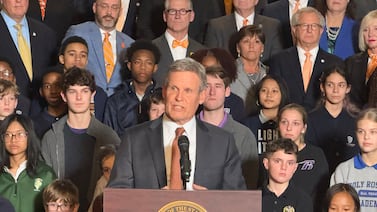School districts are already feeling the pain as the pandemic batters New Jersey’s economy, yet they are bracing for even more hurt this fall if state aid gets slashed while expenses swell.
Newark, home to the state’s largest school system, is a prime example of the vise tightening around district budgets. Last month, a projected $10 billion revenue shortfall forced Gov. Phil Murphy to scrap the funding boost he had promised districts, leaving Newark with $36 million less than it was banking on for the coming school year. This month, the state delayed its monthly aid payment to districts, forcing Newark to take out a $25 million loan to pay its bills.
Newark also has yet to receive its slice of the $310 million in coronavirus relief money that Congress approved for New Jersey schools three months ago. And it has been waiting weeks for the state to issue guidance for reopening schools in September, which will help districts plan for pandemic-related costs such as masks, laptops, and sanitizing supplies.
A full picture of the pandemic’s financial fallout won’t emerge until the fall when the state budget is finalized and school reopening costs are tallied. But Newark officials have already had to make some tough choices, including whether to cut coaches’ stipends or classroom aides’ paychecks.
“My decisions are very, very difficult,” Superintendent Roger León told the school board last month. “There isn’t an endless pit of money.”
Even before the pandemic struck, Newark faced a budget squeeze. It receives significantly less aid than it is owed according to the state’s school-funding formula, and with rising teacher salaries and plans to open two new schools this fall, it had to raise taxes and reduce spending on supplies and services by nearly $20 million to balance its budget for the 2020-21 school year.
The district’s portion of a $336 million increase in state aid that Murphy proposed in February was keeping it in the black. But last month, Murphy scaled back the increase as part of a suite of cost savings in response to the pandemic, which decimated the state’s tax revenues. Now, Newark’s proposed state aid bump for next school year has shrunk from $53 million to $17 million.
Even that diminished amount is contingent on funding sources Murphy is seeking, such as massive borrowing and additional federal relief money. If those plans don’t materialize, state aid for schools could shrink even further, said Richard Bozza, executive director of the New Jersey Association of School Administrators.
“There’s no guarantee that it won’t be reduced again because of the hole in the state’s budget,” he said.
Then there’s the looming question of what it will cost school districts to safely reopen buildings during a pandemic. The Murphy administration is expected to issue reopening guidelines Friday. Districts are already planning to purchase masks, thermometers, hand sanitizer, and extra cleaning equipment; restrictions on classroom and school bus capacity are likely to add additional costs. One analysis estimates that the average district will spend an extra $490 per student on pandemic-related safety expenses this school year.
The actual cost will likely be much higher. Districts may need to hire additional teachers and aides to catch up students who fell behind during several months of remote learning. And León has said Newark would need to buy another 10,000 laptops in order for every student to have a device — a move that may be necessary if a second wave of the virus forces school buildings to shutter again this year.
Those costs could easily exceed the $19.3 million that Newark expects to receive through the federal coronavirus relief package, known as the CARES Act, said Danielle Farrie, research director at the Newark-based Education Law Center.
“The amount of resources that districts would truly need to catch kids up from having missed this much school is pretty enormous,” she said. “It seems unlikely that the limited CARES funding is going to make a difference.”
For now, the Newark school district is trying to cut costs where it can. The district does not plan to pay stipends to 68 coaches for the spring when the pandemic brought sports to a halt, León said last month. And it is exploring whether it has the authority to avoid paying consultants and bus companies for the three months when school buildings were closed, an official said this week.
Vendors and coaches point to a state law passed in April that says districts must continue to pay employees and service providers even when schools close due to a public health crisis. “The law was passed that they are obligated to pay us,” said the owner of a bus operator who requested anonymity in order to avoid jeopardizing the company’s contract with the district.
“The law is so clear: You have to pay them; it’s not optional,” said John Abeigon, president of the Newark Teachers Union. The union will raise the issue with the state education commissioner and the governor if coaches do not receive their stipends, he added.
During a heated exchange last month when a board member questioned him on the matter, León said it would be foolish to pay people for services they did not provide during the school shutdown. He added that he had used the district’s limited funds to keep hundreds of classroom aides on the payroll, sparing them from losing their jobs during the pandemic.
“I have to choose: Do I pay the bus company that isn’t picking up any kids? Do I pay those consultants who are not doing any consulting?” he said. “Or do I make sure that 800 people aren’t on the unemployment line?”

